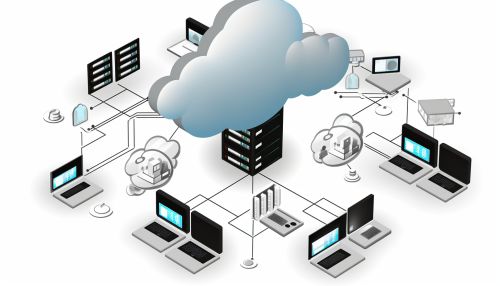Internet Engineering Task Force
Overview
The Internet Engineering Task Force (IETF) is an open, volunteer-based organization that develops and promotes voluntary Internet standards, in particular the standards that comprise the Internet protocol suite (TCP/IP). It is an organized activity of the Internet Society (ISOC), a non-profit organization that provides the administrative support for the IETF. The IETF operates through a series of working groups, each dealing with a specific topic. The working groups are organized into areas by subject matter, with each area overseen by an area director, or AD. The ADs are members of the Internet Engineering Steering Group (IESG), which is responsible for the overall operation of the IETF.
History
The IETF was formally established in January 1986, with its first meeting held in San Diego, California. The initial emphasis of the IETF was on the development of the TCP/IP protocol suite, and the organization has since evolved to address a wide range of Internet technologies. The IETF's work is conducted in a bottom-up manner, with proposals and ideas originating from the Internet community at large, rather than being dictated by a central authority. This approach has allowed the IETF to remain flexible and responsive to the rapidly changing Internet environment.
Structure
The IETF's structure is designed to facilitate the development of Internet standards. The organization is divided into several areas, each overseen by an Area Director (AD). The areas are further divided into working groups, which focus on specific topics. The working groups are the primary mechanism through which the IETF develops standards. Each working group has a charter that outlines its scope and objectives, and the group's work is conducted through a combination of mailing list discussions, interim meetings, and face-to-face meetings at the IETF's triannual gatherings.


Working Groups
Working groups are the heart of the IETF and where most of the IETF's work is done. They are typically focused on a specific topic, such as a particular protocol or aspect of the network architecture. Working groups are led by one or more chairs, who are responsible for managing the group's work and ensuring that it aligns with the IETF's processes and policies. The work of a working group is typically documented in a series of Internet-Drafts, which are preliminary versions of the proposed standard. Once a working group has reached consensus on a draft, it is submitted to the IESG for approval.
Process
The IETF's standards development process is designed to be open, transparent, and consensus-based. The process begins with the submission of an Internet-Draft, which is a document that outlines a proposed standard. Internet-Drafts are publicly available and can be submitted by anyone. Once a draft has been submitted, it is reviewed and discussed by the relevant working group. If the working group reaches consensus on the draft, it is submitted to the IESG for further review. If the IESG approves the draft, it is published as a Request for Comments (RFC), which is the final stage of the IETF's standards process.
Impact
The IETF has had a significant impact on the development of the Internet. Many of the protocols that underpin the Internet, such as TCP/IP, HTTP, and SMTP, were developed through the IETF's process. The IETF's open, consensus-based approach has allowed for the development of standards that are widely accepted and implemented across the Internet. The IETF's work has also contributed to the interoperability of Internet technologies, enabling the seamless operation of the global Internet.
Challenges
Despite its successes, the IETF faces a number of challenges. One of the primary challenges is the increasing complexity of Internet technologies, which can make the standards development process more difficult. Additionally, the IETF's consensus-based approach, while a strength in many respects, can also lead to delays in the development of standards. The IETF also faces challenges related to participation and representation, with concerns about the dominance of certain stakeholders and the underrepresentation of certain regions and sectors.
See Also
- Internet Society (ISOC)
- Internet protocol suite (TCP/IP)
- Internet Engineering Steering Group (IESG)
- Request for Comments (RFC)
